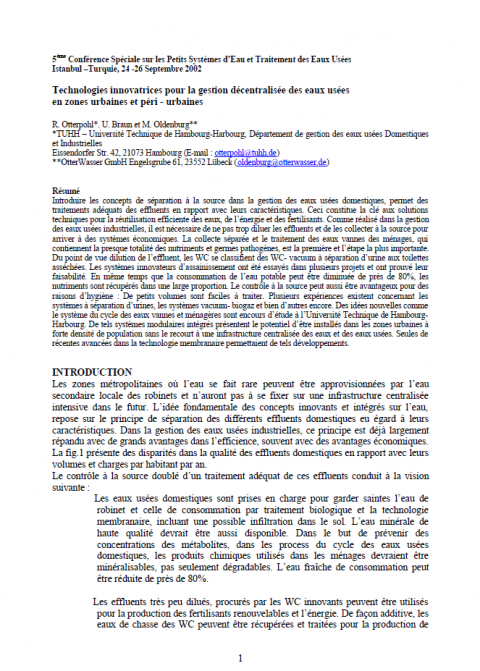Technologies innovatrices pour la gestion décentralisée des eaux usées en zones urbaines et peri-urbaines (in French) Innovative technologies for decentralised management of waste water in urban and peri-urban areas Otterpohl, R., Braun, U., Oldenburg, M. (2002)
Bibliographic information
Otterpohl, R., Braun, U., Oldenburg, M. (2002). Technologies innovatrices pour la gestion décentralisée des eaux usées en zones urbaines et peri-urbaines (in French) Innovative technologies for decentralised management of waste water in urban and peri-urban areas
Filter / Tags
Biogas systems Urine diversion dehydration toilets (UDDTs) Peri-urbanUrban (entire city)French
Downloads
Technologies innovatrices pour la gestion decentralisee des eaux usees en zones urbaines et peri-urbaines
Type: application/pdf
Size: 0.18 MB

